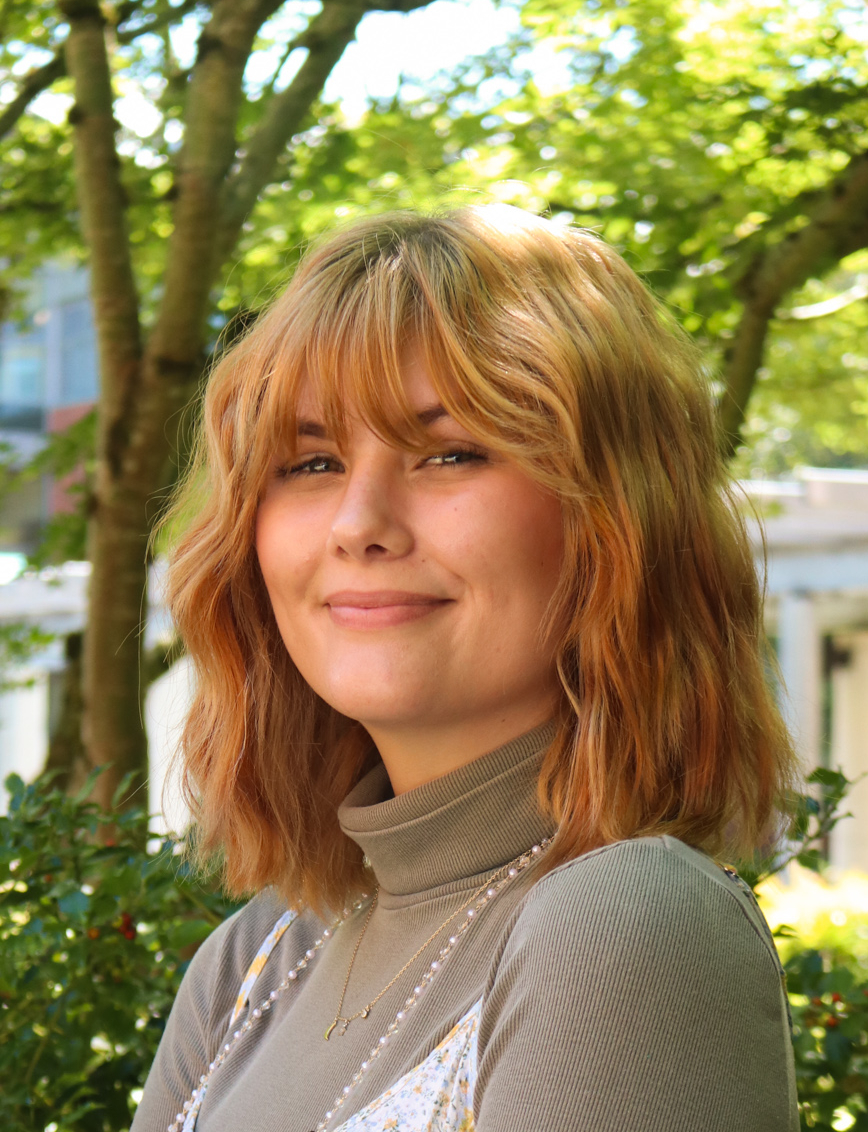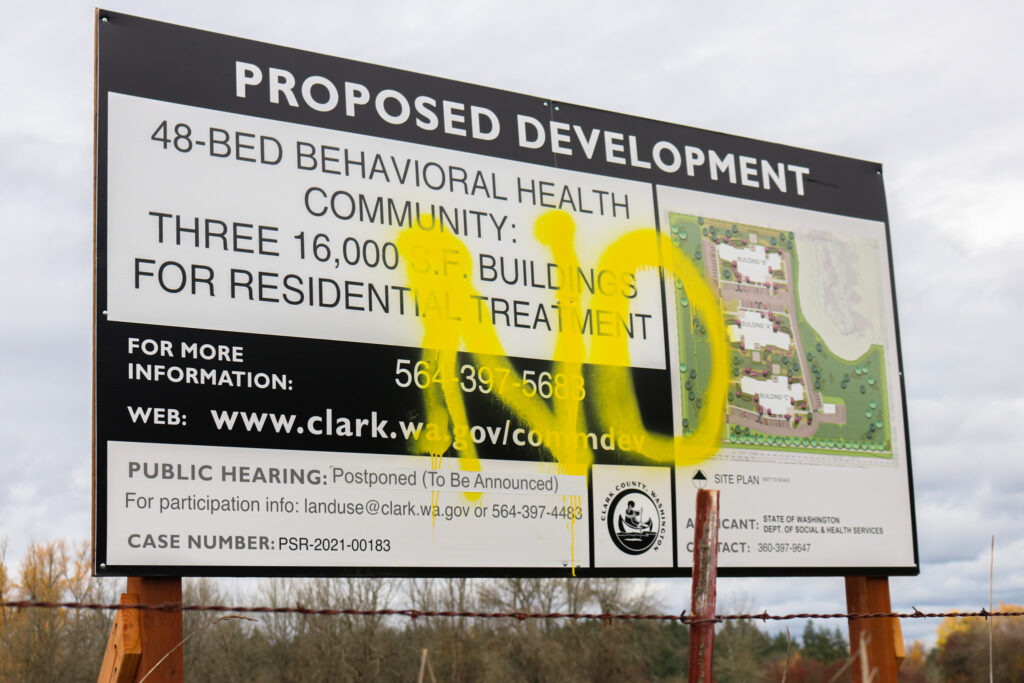To fulfill the need for inpatient psychiatric care in Southwest Washington, a new long-term mental health hospital is developing near WSU Vancouver’s campus in the Salmon Creek neighborhood. The up-and-coming facility will open its doors in 2023, however, as anticipation for the hospital builds, nearby homeowners and those part of the WSU Vancouver community have voiced concerns over the dangers this new facility could pose to its surrounding area.
The facility is set to open off Northeast 50th Ave., and Northeast 159th St., where there will be a three-building hospital complex, housing 16 patients each.
Within a private Facebook page titled “Preserve 159th Street”, 247 active members voiced a range of concerns about the facility. One member stated, “There are too many schools and children close by, and it will be dangerous for them, not just from the mentally ill patients, but from the significant increase in traffic with no road improvements planned.” Additionally, the community has created flyers, signs, a web site (nomentalfacility.org) and a GoFundMe to raise awareness around the opening of the new facility.
Kim Schneiderman, executive director at the National Alliance on Mental Illness, said the fears surrounding the opening of the facility are likely due to a lack of public understanding of protocols associated with safety and security standards within mental health hospitals.
“It’s scary, I get it. If you have questions or comments, feel free to talk to us. My ears are open, I’m willing to make changes to it, I just need to know. I’m excited to have conversations [and] to open a dialogue.” – Larry Covey
“Patients aren’t going to be wandering around by themselves. They’re always going to be accompanied,” Schnei- derman said. “There are wide internal security measures that are going to be in place, blocks and alarms and assorted other things. But realistically, it’s only 16 people, [it] isn’t going to be hard to keep people safe and secure.”
Additionally, Jenise Gogan, director of community transitions within the Behavioral Health Administration at the Washington State Department of Social and Health Services, said various media outlets sensationalizing these facilities could be contributing to public distress.
“I think we don’t hear enough good stories, we only hear bad stories. And if you watch certain kinds of media, or you click on certain media, you’re fed more of those negative stories,” Gogan said. “I’ve seen people discharged from Western State Hospital after being there most of their adult life and they’re in their 60s. And it’s amazing when you get the opportunity to watch them walk out the door… to go to their home, it’s really exciting.”
As stated by Gogan, there are many benefits to treating people with mental illness in a community near their support systems. Since there is a need for a facility like this in the Southwest Washington region, Gogan said the mental health hospital will ensure patients are not excluded from their community by offering a place of involvement within churches, schools and other organizations.
“All of the research supports family involvement. Community involvement is critical for people’s recovery. We often hear messages about destigmatizing mental illness. I think we have to remember these [patients are] our family, our friends, our neighbors. 1 in 5 Washingtonians have a mental health diagnosis or mental health condition, and probably a lot [of them] don’t go to the doctor,” Gogan said.
According to the media relations manager at DSHS, Tyler Hemstreet, another concern raised by the community questions if the facility may worsen homelessness in the surrounding area. However, Gogan said the treatment provided at these facilities will help reduce the homeless- ness crisis in Vancouver, and DSHS has developed a plan to provide housing to as many individuals as possible.

Hemstreet said many of the fears he has heard from community members are based on the circulation of misinformation, covering the facility’s true purpose.
“There have been some concerns about what some of the community call unau- thorized leaves. . . .I think what people need to remember is, this is not a department of corrections facility. So we’re not keeping folks in here that have been charged. So, I think that there’s some misinformation about people wanting to leave and escape, and that it is a danger to the community,” Hemstreet said.
An open forum was held on the WSU Vancouver campus on Nov. 4, giving the community an opportunity to learn about the new facility. The event provided students and community members the opportunity to learn more about the facility’s planning, discuss concerns and ask questions. In an announcement during the forum, Larry Covey, the construction’s project coordinator, said the DSHS wants to remain transparent with the community at large.
“It’s scary, I get it. If you have questions or comments, feel free to talk to us. My ears are open, I’m willing to make changes to it, I just need to know. I’m excited to have conversations [and] to open a dialogue,” Covey said.
Members of the DSHS team and representatives from National Alliance on Mental Illness believe the new mental health facility will benefit the local community, WSU Vancouver students, staff, faculty and all residents in Southwest Washington.

Bethanie is a senior studying environmental and ecosystem science at WSU Vancouver.
